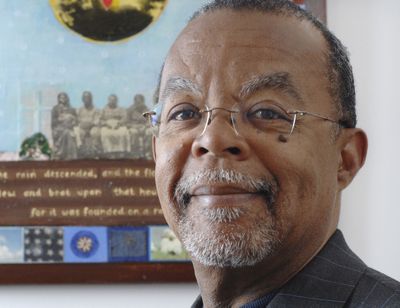Harvard scholar livid over arrest
Black academic says he was targeted because of his race

BOSTON – Prosecutors dropped a disorderly conduct charge Tuesday against prominent black scholar Henry Louis Gates Jr., who was arrested after forcing his way into his own house in what he and other blacks say was an outrageous but all-too-common example of how police treat them.
The city of Cambridge called the arrest “regrettable and unfortunate,” and police and Gates agreed that dropping the charge was a just resolution – though not one that quelled the anger of one of America’s top academics.
“I’m outraged,” Gates said in extensive comments made to TheRoot.com, a Web site he oversees. “I can’t believe that an individual policeman on the Cambridge police force would treat any African-American male this way, and I am astonished that this happened to me; and more importantly I’m astonished that it could happen to any citizen of the United States, no matter what their race.
“There are 1 million black men in the prison system, and on Thursday I became one of them,” he said. “I would sooner have believed the sky was going to fall from the heavens than I would have believed this could happen to me. It shouldn’t have happened to me, and it shouldn’t happen to anyone.”
Gates, 58, is director of Harvard’s W.E.B. Du Bois Institute for African and African American Research and is a documentary host. He was arrested upon his return home from China, where he working on his latest film. He said he’s now inspired to work on a documentary about racial profiling.
The city of Cambridge, a Boston suburb, released a statement saying the situation “should not be viewed as one that demeans the character and reputation of professor Gates or the character of the Cambridge Police Department.”
Gates had just arrived from the airport when he realized his front door was jammed and he couldn’t get into the tidy house with yellow clapboard that he rents from Harvard. He asked his driver for help.
Supporters say Gates was immediately considered a suspect because officers were summoned by a female caller who said she saw “two black males with backpacks on the porch,” one of whom was “wedging his shoulder into the door as if he was trying to force entry,” according to a police report.
When the officers arrived, Gates was already inside and on the phone with the real estate company that manages the property. He had come in through the back door and shut off the alarm, he said.
Police said Gates was arrested after he yelled at an officer, accused him of racial bias and refused to calm down after the officer demanded that Gates show him identification to prove he lived in the home.
Gates’ lawyer, fellow Harvard scholar Charles Ogletree, said his client showed his driver’s license and Harvard ID – both with his photos – and repeatedly asked for the name and badge number of the officer, who refused. He followed the officer onto the front porch as he left his house and was arrested there.
Gates noted that at least one of the officers in the group outside his house was black.
He spoke of a “terrifying and humiliating” experience at the Cambridge jail, where he was booked, fingerprinted, photographed and questioned, then locked up in a tiny cell that made him claustrophobic.
He said he wants an apology from the officer, Sgt. James Crowley, who hasn’t responded to a request for an interview from the AP. He also said he planned to talk to his legal team about the next step.
Gates did not respond to AP requests for an interview Tuesday, and Ogletree did not return a request to comment on the charge being dropped.